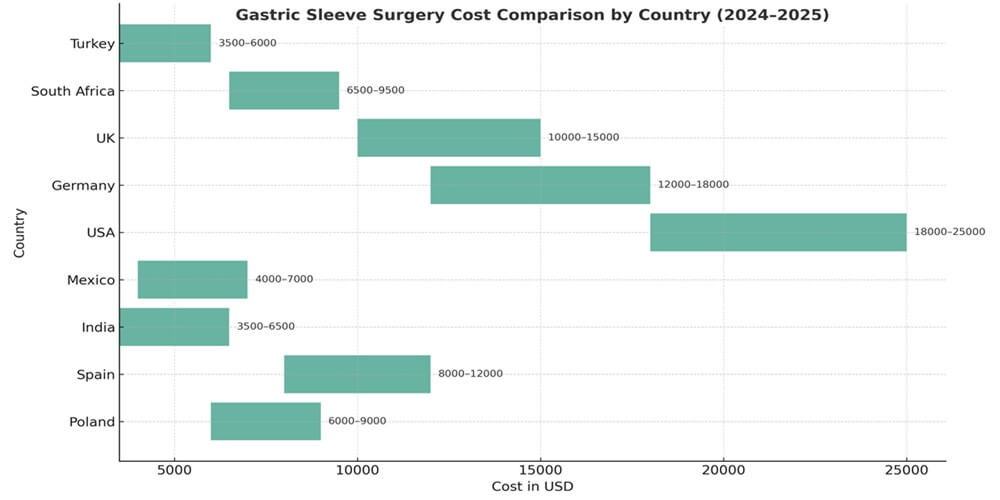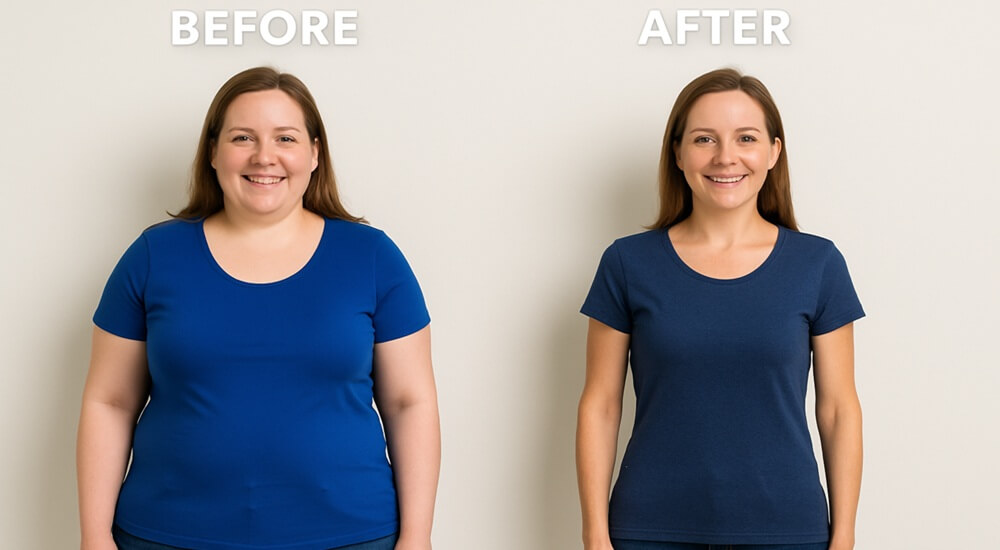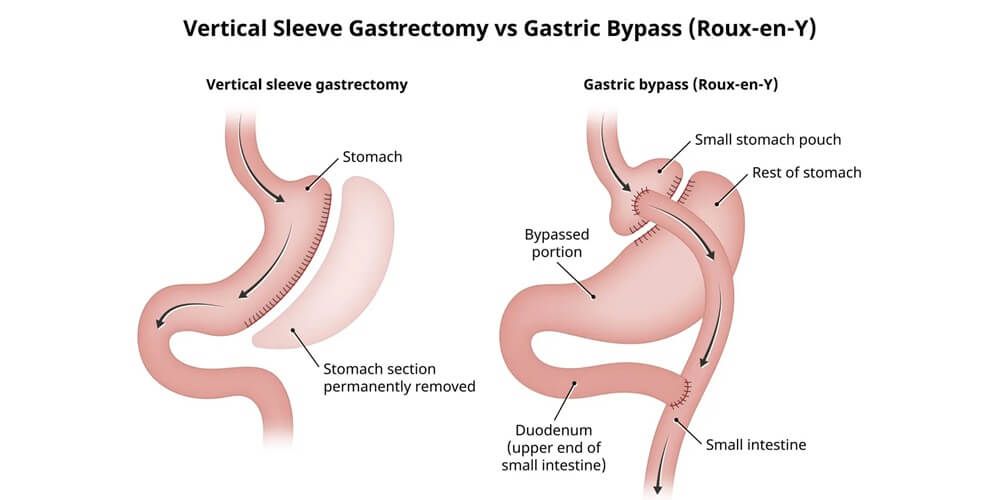Home » South Africans Prefer Türkiye for Gastric Sleeve Surgery

Gastric sleeve surgery, a life-changing solution for individuals struggling with obesity, is increasingly gaining popularity among South Africans. Interestingly, many are choosing to undergo this surgery not in their home country, but in Türkiye—a country rapidly emerging as a global hub for medical tourism. This article explores what gastric sleeve surgery entails, why South Africans are opting for treatment abroad, and what they should consider regarding cost and complications.
Gastric sleeve surgery, medically known as sleeve gastrectomy, is a type of bariatric surgery that involves the removal of approximately 80% of the stomach. This results in a sleeve-shaped stomach that is significantly smaller in volume, limiting food intake and promoting early satiety. The procedure is performed laparoscopically and is considered less invasive compared to other bariatric surgeries such as gastric bypass.
The primary goal of the surgery is to induce substantial weight loss in individuals with a Body Mass Index (BMI) over 35, or in those with obesity-related comorbidities such as type 2 diabetes, hypertension, or sleep apnea.
There are several compelling reasons why South Africans—particularly those with European backgrounds or access to private healthcare—are choosing Türkiye as their destination for gastric sleeve surgery:
One of the most significant driving factors is the cost difference. In South Africa, the price of gastric sleeve surgery ranges from R120,000 to R180,000 (approximately $6,500 to $9,500 USD), depending on the hospital and surgeon. In contrast, Türkiye offers the same procedure at significantly lower rates, averaging between $3,500 and $6,000 USD, often inclusive of accommodation, transfers, interpreter services, and aftercare.
Türkiye has made major investments in its healthcare sector over the past two decades. It boasts JCI-accredited hospitals, highly trained bariatric surgeons, and state-of-the-art surgical facilities. Many Turkish doctors have international training and experience, and hospitals offer comprehensive pre-operative and post-operative care plans tailored to international patients.
In South Africa, especially in public hospitals, patients often face long waiting lists. In Türkiye, the surgery can be scheduled within a few days or weeks, offering greater convenience for those eager to begin their weight loss journey.
Turkish clinics offer all-inclusive medical tourism packages that provide patients with surgery, 5-star accommodation, airport pick-up, translation services, and 24/7 support during their stay. These packages are particularly attractive to international patients, including South Africans.

Country | Average Price (USD) | Included Services | Waiting Time |
Turkey | $3,500 – $6,000 | Surgery, hotel stay, airport transfers, interpreter, aftercare | 1–3 weeks |
South Africa | $6,500 – $9,500 | Surgery only, extra fees may apply in private hospitals | 1–3 months |
United Kingdom | $10,000 – $15,000 | Surgery only (NHS wait times can be very long) | 6–12 months (NHS) |
Germany | $12,000 – $18,000 | Surgery only, not always covered by insurance | 2–4 months |
USA | $18,000 – $25,000 | Surgery only, insurance usually does not cover it | 1–3 months |
Mexico | $4,000 – $7,000 | Surgery, accommodation, transfers | 1–2 weeks |
India | $3,500 – $6,500 | Surgery, accommodation, consultation | 2–3 weeks |
Spain | $8,000 – $12,000 | Surgery + limited services | 1–2 months |
Poland | $6,000 – $9,000 | Surgery + basic accommodation | 2–4 weeks |
Gastric sleeve surgery, also known as sleeve gastrectomy, is one of the most popular bariatric procedures worldwide — and for good reason. Patients experience not only significant weight loss but also major improvements in overall health and quality of life. Below are the most compelling benefits and advantages of this life-changing procedure:
· Effective Long-Term Weight Loss
Patients typically lose 60–70% of their excess weight within the first 12 to 18 months. The reduced stomach size limits food intake, and hormonal changes help reduce hunger and appetite.
· Improvement or Resolution of Obesity-Related Conditions
Gastric sleeve surgery often leads to improvement or complete resolution of health issues such as:
· No Foreign Body Required
Unlike gastric bands, the gastric sleeve does not involve the insertion of any foreign devices, reducing the risk of complications and future surgeries.
· Shorter Surgery Time and Recovery Period
The surgery usually takes around 60–90 minutes and can be performed laparoscopically (minimally invasive). Most patients return to work and normal activities within 2–4 weeks.
· Improved Quality of Life
Weight loss contributes to increased energy levels, better mobility, improved mental health, and higher self-esteem. Many patients report enhanced relationships and social confidence after surgery.
· Lower Risk of Nutritional Deficiencies Compared to Other Surgeries
Unlike gastric bypass, the gastric sleeve does not bypass the intestines, which means patients are less likely to suffer from severe vitamin or mineral deficiencies with proper nutritional guidance.

Before the Surgery
Patients undergo a thorough medical assessment, including blood tests, endoscopy, and consultations with a dietitian and anesthesiologist. Psychological evaluation is also recommended to ensure the patient is mentally prepared for the lifestyle changes required after surgery.
After the Surgery
Most patients can expect to lose between 60% and 70% of their excess body weight within the first 12 to 18 months following the surgery. However, successful outcomes depend heavily on maintaining a healthy diet, regular physical activity, and routine follow-up appointments.
Many South Africans who underwent the surgery in Türkiye have shared their transformational journeys online, highlighting not just physical changes but also improved quality of life and mental well-being.
Although gastric sleeve surgery is considered safe, like any surgical procedure, it carries certain risks. These include:
It is crucial for patients to choose reputable clinics and experienced surgeons to minimize these risks. Türkiye’s leading bariatric clinics typically provide post-operative care plans and long-term follow-up to ensure patient safety.
Gastric sleeve surgery is not merely a cosmetic solution—it is a medical necessity for many battling obesity and its complications. Türkiye offers South Africans an affordable, high-quality, and efficient option for undergoing this procedure. While the decision to have surgery abroad should be made with careful consideration, Türkiye’s reputation for excellence in medical tourism makes it a compelling choice for those seeking gastric sleeve surgery.
If you’re considering gastric sleeve surgery abroad, Zaren Clinic in Türkiye stands out as a trusted choice. Here’s why patients from South Africa and across Europe prefer Zaren Clinic:
Zaren Clinic combines advanced medical technology with compassionate care, making your weight loss journey safe, effective, and stress-free.
👉 Transform your life with Zaren Health — Where Health Meets Excellence.

Gastric sleeve surgery, also known as sleeve gastrectomy, is a weight-loss procedure where about 75–80% of the stomach is removed, leaving a smaller, sleeve-shaped stomach. This limits the amount of food you can eat and helps reduce hunger hormones.
Most patients can return to normal daily activities within 2–4 weeks. However, full recovery and adjustment to a new diet may take several months.
In most countries, this depends on the insurance provider and whether the procedure is deemed medically necessary. In countries like Turkey or Mexico, it is typically a self-paid procedure but much more affordable than in the US or UK.
Due to significantly lower prices, high-quality healthcare facilities, experienced bariatric surgeons, and comprehensive all-inclusive packages, many patients from Europe, Africa, and the Middle East prefer Turkey for weight-loss surgeries.
As with any major surgery, risks include infection, bleeding, or leakage. Long-term side effects may include acid reflux, nutritional deficiencies, or the need for future surgeries. Choosing an experienced surgeon greatly reduces these risks.
Hello!